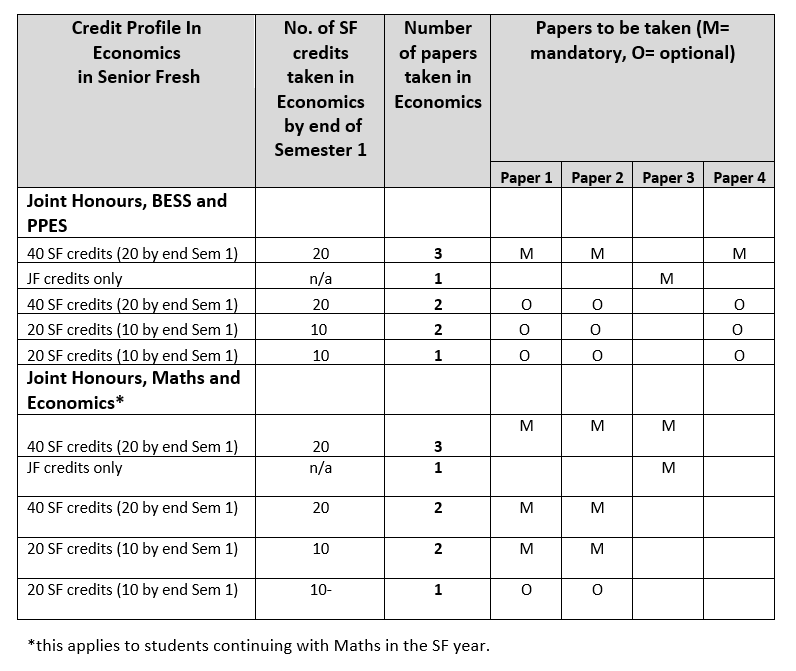Scholarship Examinations

The College-wide Scholarship examination is held just before the start of Semester 2 each year. Students in their Senior Fresh year are encouraged to consider sitting this examination (referred to as 'Schol') as an overall First brings substantial rewards.
Recommendations for scholarship will be based on all papers, subject to a mark of at least 65 being achieved in all papers.
Students who obtain an overall I based on the mean of their marks in the two subjects are recommended to the Board for election to Scholarship. Scholars obtain free Commons, are entitled to rooms free of charge for nine months of the year, are entitled to remission of student charges and receive a (rather small!) salary. Students who sit 'Schol', however, comment that a major benefit regardless of success is the camaraderie and closeness created among the group preparing for the examination.
Slides from the 2023/2024 Economics Foundation Scholarship Information Session are available here.
Overall Structure of Economics I and II and Quantitative methods papers
The Department of Economics is responsible for four papers in the Scholarship examination: Economics I, Economics II, Economics III, and Quantitative methods. Apart from Economics III, which focuses on first year material, the main focus of the questions on these papers will be on the subject-areas covered in economics modules in Semester 1 in the SF year, with Economics I relating to module ECU22011 (Intermediate Economics A), Economics II relating to module ECU22021 (The Economy of Ireland A), and Quantitative methods relating to module ECU22031 (Mathematical and Statistical Methods A.) Economics III will focus on material from the Introduction to Economics sequence, ECU11011 and ECU11012.
The number and combination of papers which you should take depends on your programme plus the pathway which you are taking as listed in the table below. Please note that if you are taking an economics module as an open module, this cannot be taken as one of your economics scholarship papers. There are mandatory papers for different programmes and pathways plus optional choices:
Structure of individual papers, each being timed at 2¼ hours
Paper 1: Economics 1. The main focus of the questions will be material relating to module ECU22011 Intermediate Economics A. In contrast to annual exam papers, questions will be more general in nature, and may also draw on material from ECU11011 and ECU11012.
Paper 2: Economics 11: The focus will be on material covered in module ECU22021, The Economy of Ireland A. Compared to annual exam papers, questions will be more general in nature.
Paper 3: Economics 111: Questions covered will draw on material from the Introduction to Economics sequence, ECU11011 and ECU11012. Compared to annual exam papers, questions will be more general in nature.
Paper 4: Quantitative Methods: Questions will draw mainly on material from ECU22031, Mathematical and Statistical Methods A, but may also draw on material from ECU11021 and ECU11022. Compared to annual exam papers, questions will be more general in nature.
The questions on all papers will range more widely than the confines of lectures, i.e. they will not be as closely related to the lecture courses as would be expected of those on an annual examination paper. In Economics I, for example, questions may draw on material from ECU11011 & ECU11012 Introduction to Economics A & B (or equivalent), both microeconomics and macroeconomics, as well as from ECU22011 Intermediate Economics A (Semester 1). In Quantitative methods, questions may draw on material from ECU11021 & ECU11022, both mathematics and statistics, as well as from ECU22031 Mathematical and Statistical Methods A (Semester 1). Economics III, however, will focus only on first year material. Good answers on any of the papers might draw on all the economics that the examinee has been exposed to since entering College.
Students are encouraged to go beyond the confines of the reading lists: your preparation might for example include material drawn from The Economist; VoxEU at http://www.voxeu.org/; ESRI reports, such as the Quarterly Economic Commentary, at www.esri.ie. This list is not exhaustive. For a very efficient way to see what is happening on the 'respectable blogs', see http://economistsview.typepad.com/


